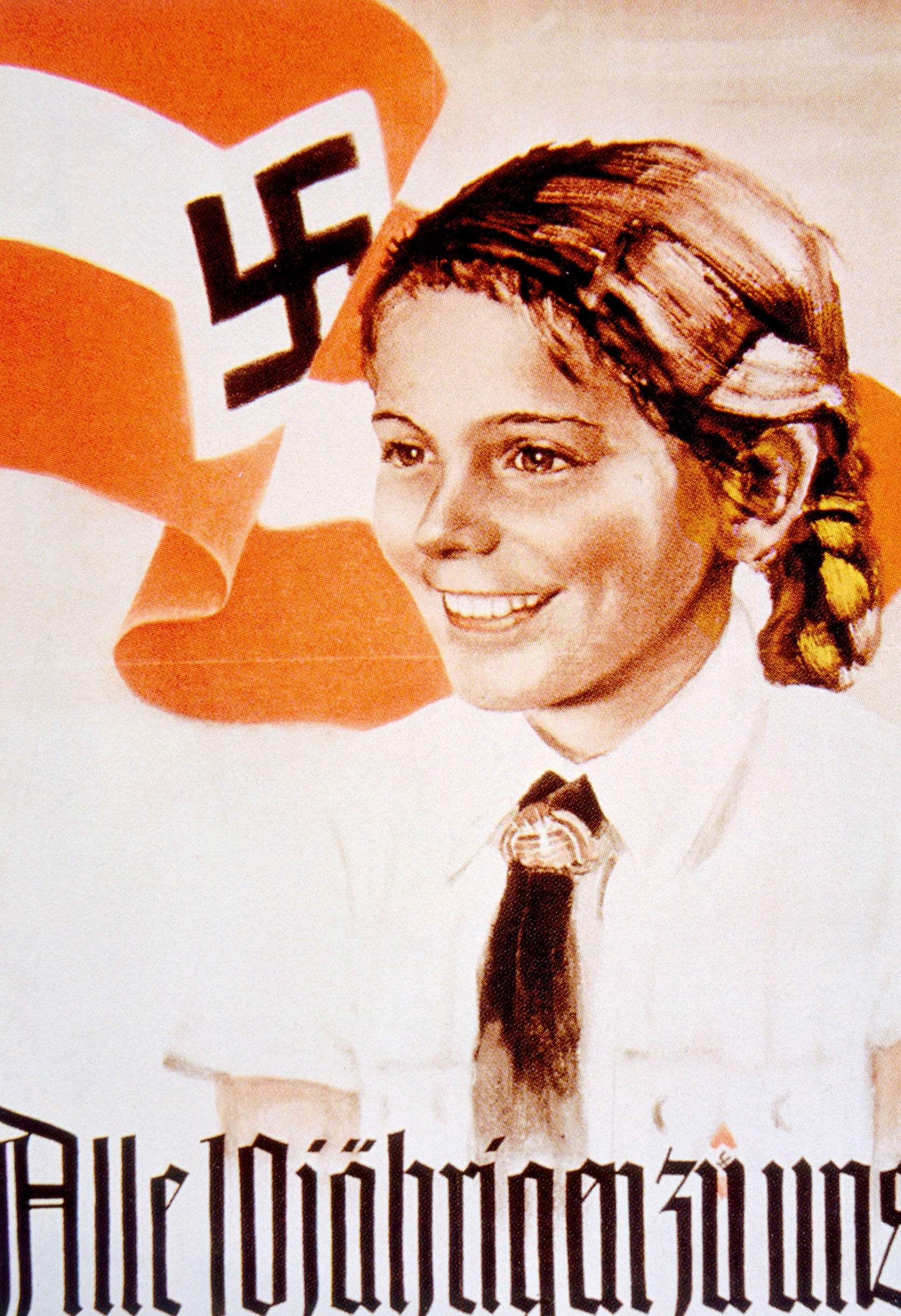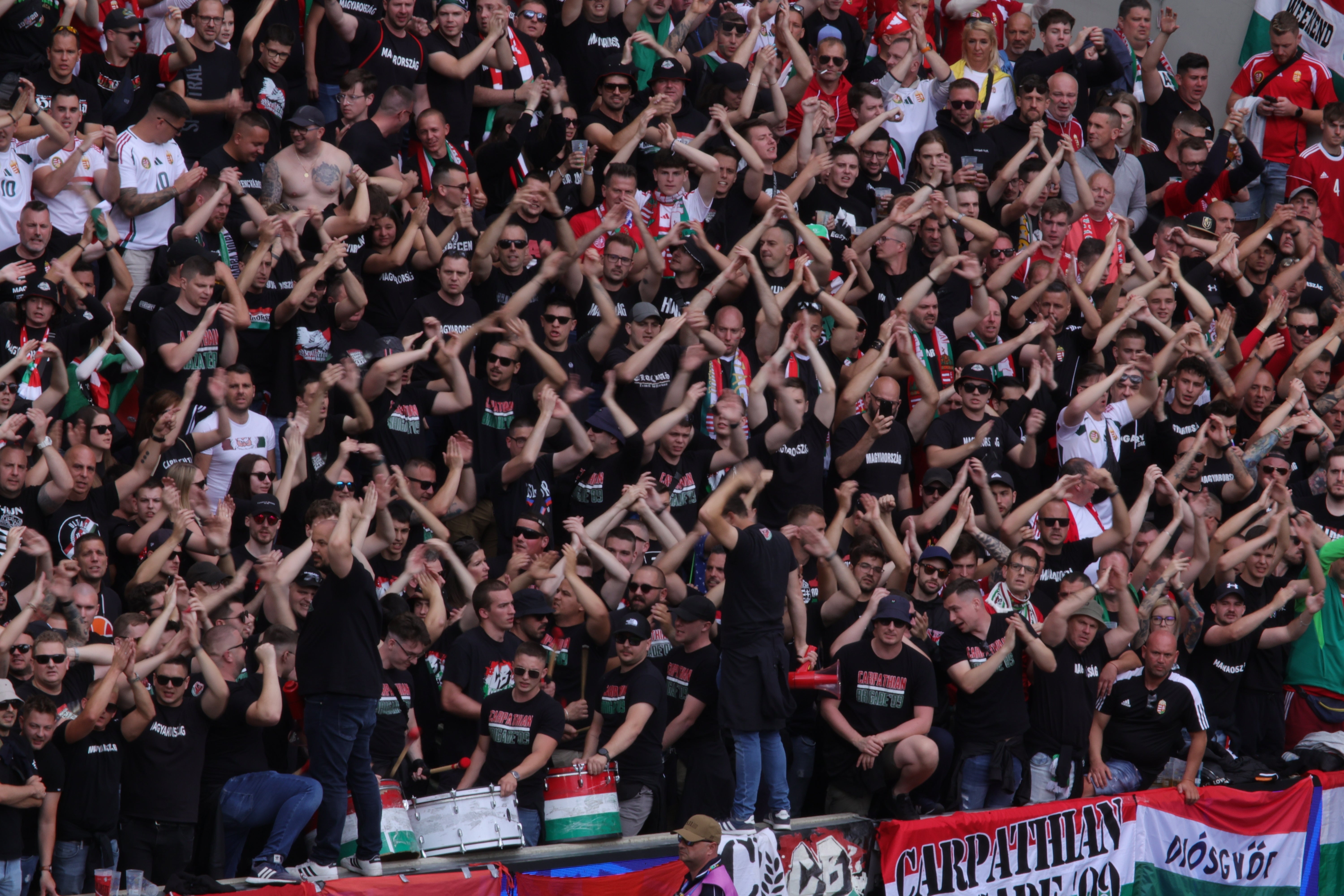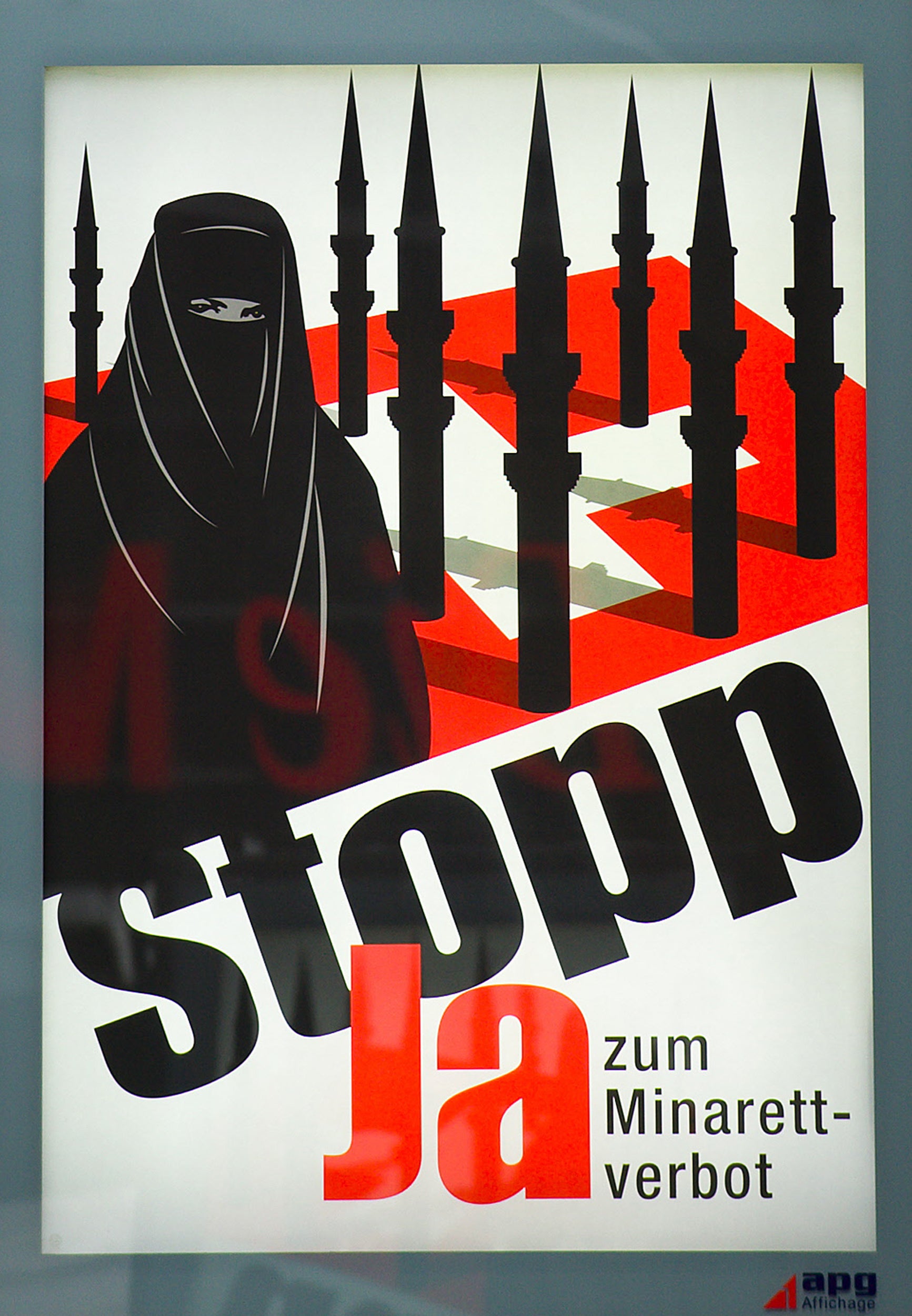At first glance, it is indistinguishable from a Hitler Youth poster. The boy must be around eight years old, his hair strikingly blonde, his eyes cornflower blue. He looks intensely and innocently at the viewer, while behind him stretches an idealised pastoral landscape. The poster is emblazoned with a slogan, in French, which reads: “Let’s give white children a future”. The sentiment is of course exceptionally racist, and it comes as no surprise to learn that the poster promotes the far-right Party of France in this first round of voting in its parliamentary election.
What is surprising, however, is the fact that the candidate Pierre-Nicolas Nups had the gall to approve the blatant Nazi-style imagery. Faced with outrage from Pascal Schneider, the mayor of Neuves-Maisons, one of the biggest towns in the constituency, Nups disingenuously declared that the poster “is neither sectarian nor exclusive”, and that “on the contrary, it delivers a positive message, a message of hope for our youth, and nothing else”. Even more brazenly, Nups insisted that “if anyone sees anything else in it, it would be a malicious interpretation”. Schneider said the candidate has been referred to public prosecutors over the poster.
By tapping into a Nazi aesthetic – if it can be dignified as such – the likes of the Party of France of course know exactly what they are doing. Far from being wary of the look and feel of Nazism, such parties are now embracing it, and are not ashamed. In essence, the use of images such as a “perfect Aryan” child reveal that Nazism, for the members and potential voters of the Party of France, is something to be celebrated.
This poster reflects a worrying and disturbing trend. Take, for example, the poster produced by the far-right Swiss People’s Party (SVP), which featured a Swiss flag covered in minarets, and a woman dressed in a burqa. With a slogan that calls for a ban on minarets, the style of the poster – in red, white, and black – is clearly derivative of the colours of the Nazi swastika flag. Furthermore, the stylised image of the Muslim woman and its demonising of her is clearly influenced by the Nazi propaganda posters showing grotesque figures of Jews. The implication behind the Swiss poster is clearly saying these people do not belong here, these people are “other”, these people are essentially not human.
Such “othering” and the idea of some sort of parasitical “enemy within”, can also be seen in an ad produced by the far-right Finns Party in Finland last year. One-half of the poster shows one of the party’s candidates, Laura Jokela. She has blonde hair, plaited into a pigtail, and is smiling, the imagery looks remarkably reminiscent of a Nazi poster promoting the League of German Girls. The other part of the poster shows the other half of Jokela’s face, but this time it is obscured by a burqa. The slogan reads, “East Helsinki. Like going abroad?” The message is abundantly clear – such people do not belong in our country.
Just like Nups of the Party of France, Jokela is similarly disingenuous. “If someone feels that the picture is racist, they can ask themselves why they feel that way,” she says. “If the reason is a Finnish woman wearing a burqa, you can reflect on your own prejudices, why it causes negative feelings,” she said.
The likes of Joseph Goebbels and his Nazi propaganda machine were of course completely unapologetic about their prejudice, and never tried to claim that their posters were anything but racist. The fact that, in 2024 there are those who feel so emboldened to produce posters which remind us of this era, makes you wonder how long before they become as blatant and proud of their intention too.

As well as in posters, far-right politicians across Europe are also delighting in using language and phraseology that clearly and deliberately echoes slogans used by the Nazis and other fascist movements. In Portugal, the populist far-right Chega party, which was founded by a lawyer and sports journalist called Andre Ventura, had adopted the slogan “God, country, family and work”, which is alarmingly reminiscent of the slogan “God, country, family” used by the Portuguese dictator Salazar, still a living memory for many.
Then there is Bjorn Hocke, the prominent member of the far-right Alternative for Germany (AfD), who seems intent on using Nazi slogans even though it has now seen him in court twice. Last month, he was fined €13,000 (£11,000) for using the phrase “Everything for Germany” in 2021. That slogan was used by the Brown Shirts, also known as Storm Troopers, who were instrumental in helping Hitler come to power.
Undeterred, earlier this week, Hocke again appeared in court, charged with using the slogan once more, as well as inciting a crowd to do so. If one needed more proof of how much Hocke likes flirting with Nazism, it should be remembered that this is a man who called Berlin’s Holocaust monument a “memorial of shame”.
And it is not just in political campaigns that we are seeing manifestations of outright fascism, for it is also highly visible on the football terraces during the Euros too. Perhaps the most blatant example could be seen at the recent match between Hungary and Switzerland, during which the so-called Carpathian Brigade, a highly nationalist group of Hungarian hardline football fans known as “ultras”, all wore black shirts, an item of apparel with obvious fascist resonance.
What made the behaviour of the “brigade” even more disturbing is that it has adopted some paramilitary elements taken straight from the playbook of the Nazi party’s Brown Shirts. Unlike many factions of ultras, the Carpathian Brigade instead insists that its members march in an orderly fashion to the stadium, thereby giving an impression of quasi-military discipline. Songs are then sung which are clearly racist, including the melody to a well-known song which often has its words twisted to feature the line, in German, of “Out with foreigners”.

What is striking about all these manifestations of Nazi imagery and language is its boldness. While some far-right parties are still on the fringe, there are others, most notably in France and Germany, where they are in the ascendant. Besides, even being on the edge of the mainstream cannot simply be dismissed, as members of such parties are often highly radicalised and capable of acts of violence and terrorism. And it should not be forgotten that the Nazi party was, after all, on the lunatic fringe itself.
Anybody aware of Karl Popper’s paradox of tolerance will know that tolerating the intolerant will only allow the intolerant to win, and thereby eliminating tolerance. Racist posters, mass wearing of black shirts, Nazi slogans – none of these are welcome. To allow them unhindered will mean that none of our children – whatever colour or creed – will have a future.
Credit: Source link




